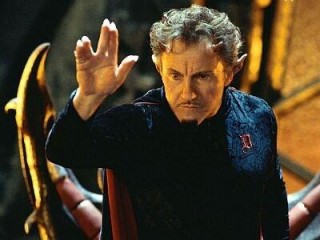
Harvey Keitel biography
Date of birth : 1939-05-13
Date of death : -
Birthplace : Brooklyn, New York
Nationality : American
Category : Arts and Entertainment
Last modified : 2010-12-12
Credited as : Actor, roles: Thelma & Louise, The Piano
0 votes so far
A product of Brooklyn, where he was born on May 13, 1939, Keitel grew up as something of a delinquent. At the age of 16, his truancy was put to an end when he was sent to Lebanon with the Marine Corps. Upon his return, he sold shoes and nurtured an interest in acting. He studied the craft with Lee Strasberg and Stella Adler and began appearing in off-off-Broadway productions. When he was 26, fate struck in the form of a casting ad placed by Scorsese, at that time a fledgling student director at New York University; Keitel's response to the ad began a collaboration that would last for years and produce some of the more memorable moments in film history. Keitel and Scorsese made their onscreen feature debuts with Who's That Knocking at My Door? (1968), in which the former played the latter's alter ego. Five years later, they collaborated on Mean Streets; that and their subsequent collaborations of the '70s, Alice Doesn't Live Here Anymore (1974) and Taxi Driver (1976), were some of the decade's most memorable films. Unfortunately, despite these achievements, Keitel's career suffered a great blow when he lost the lead in Francis Ford Coppola's Apocalypse Now to Martin Sheen. He spent much of the '80s appearing in obscure and/or forgettable films, save for Scorsese's controversial The Last Temptation of Christ (1988), and by the time he was cast in Thelma & Louise in 1991, he was in a career slump.
1991 and 1992 marked a turning point in Keitel's career: his role in Thelma and Louise as a sympathetic detective -- much like his role in that same year's Mortal Thoughts -- helped him break through the stereotypes surrounding him, and his Oscar nomination for his portrayal of gangster Mickey Cohen in Bugsy (1991) put him back in the forefront. Keitel's work in 1992's Bad Lieutenant, Reservoir Dogs, and Sister Act further established him as an actor of previously unappreciated versatility, and in 1993 he proved this versatility when he starred in Jane Campion's exotic art drama The Piano, in which he famously appeared in the nude as Holly Hunter's lover.
Keitel continued to demonstrate his ability to play both hard-boiled gangsters and rough-edged nice guys throughout the rest of the decade, turning in one solid performance after another in such films as Pulp Fiction (1994), Clockers (1995), and Copland (1997). One of his most memorable characterizations, cigar shop owner Auggie Wren, came from his collaboration with Paul Auster on Smoke and Blue in the Face (both 1995); he also worked with Auster on his 1998 romantic drama Lulu on the Bridge. In 1999, Keitel could be seen in variety of films, notably Tony Bui's Three Seasons, in which he played an American soldier searching for his lost daughter in Vietnam, and Jane Campion's Holy Smoke, in which he played a man sent to deprogram Kate Winslet of the teachings she received while part of a religious cult.
















